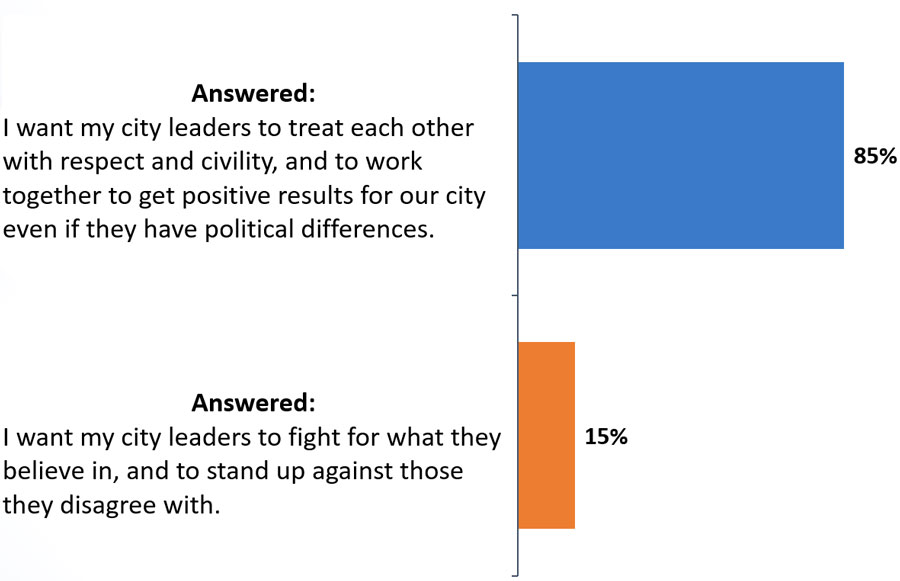by
<a href="mailto:communicationsteam@awcnet.org">Communications</a> | Mar 23, 2023
In December 2022, AWC conducted a public opinion survey to gauge our communities’ opinions.
In December 2022, AWC conducted a public opinion survey to gauge our communities’ opinions. The survey was conducted by EMC Research and identifies where residents’ concerns land and outlines some pressing issues for cities to focus on throughout
the state. Read a snapshot of what we learned.
Demographic profile of respondents
We surveyed more than 500 “likely” voters from December 5-11, 2022. Those surveys happened via telephone, email, and text-to-web. Importantly, the interviews were conducted anonymously, so those participating did not know who was conducting
the survey.
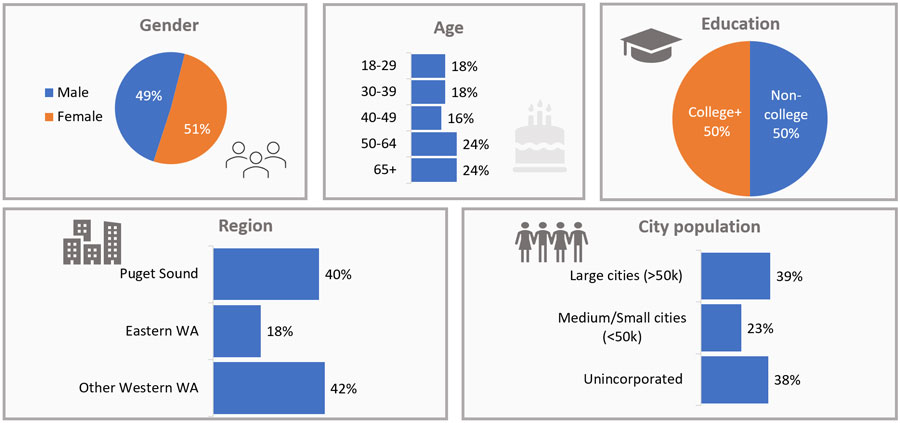
There’s an even split in education and gender, with Washington’s regional and age splits that are representative of the state’s concentration and age of population. Notably, the city population distribution included 38% of respondents who do not live inside a city.
Selected priorities for city government
AWC used a select list of several city issues and asked how respondents rated each issue in terms of priority, which was not inclusive of every issue that impacts a city or resident. The question asked residents to "rate on a scale of 1-7, how important
are the following priorities for your city government?”
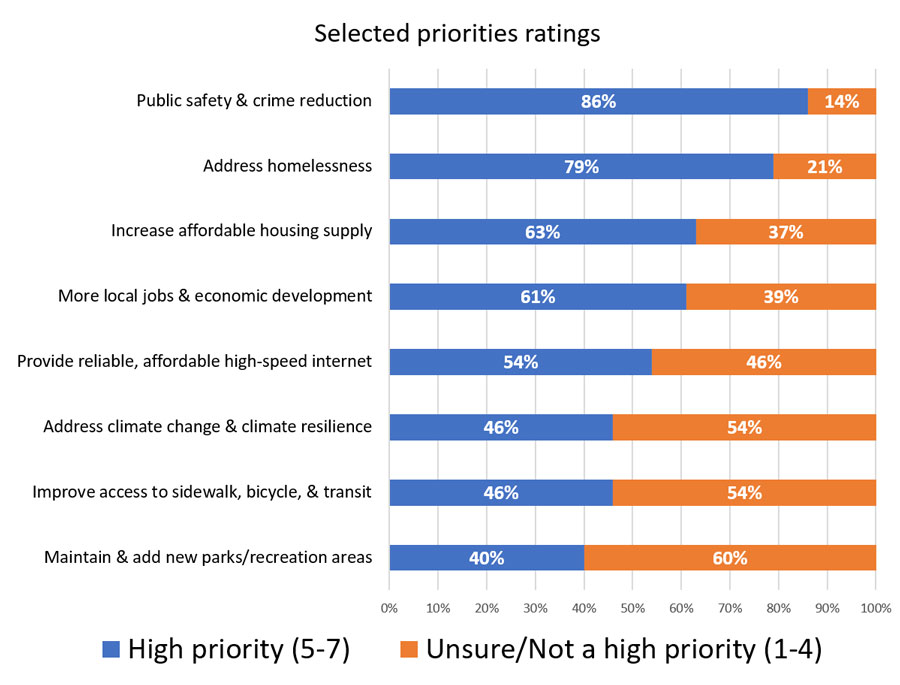
Interestingly, there’s been a large shift on the topic of public safety—where in just 23 months, the number of respondents rating public safety as a high priority (5 through 7 on the scale) went up by 14%.
- In Jan. 2021: 72% of respondents said that reducing crime is a high priority; and
- In Dec. 2022: 86% of respondents said that improving public safety and reducing crime is a high priority.
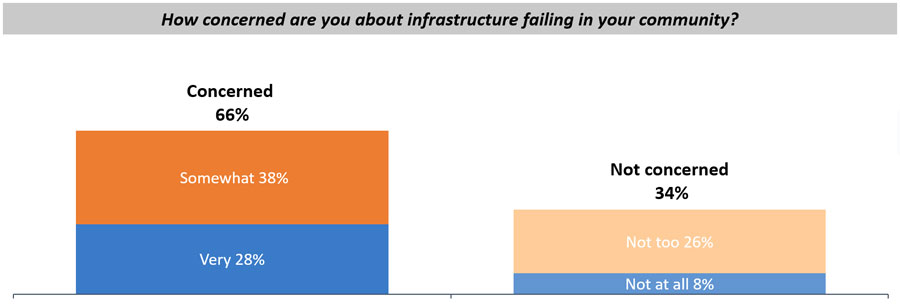
There was also a clear mandate from respondents on the topic of infrastructure. Residents are concerned about failing city infrastructure by a large margin at 66% responding they are somewhat or very concerned about infrastructure failing
in their communities.
Local government decision-making is popular
The survey of residents revealed that people trust their city leaders.
- 81% of respondents feel that their local government is more connected than their state government to address community needs and pass laws that reflect the community’s values.
- Similarly, 82% of respondents feel that local government is in a better position than the state to make decisions on pressing community issues.
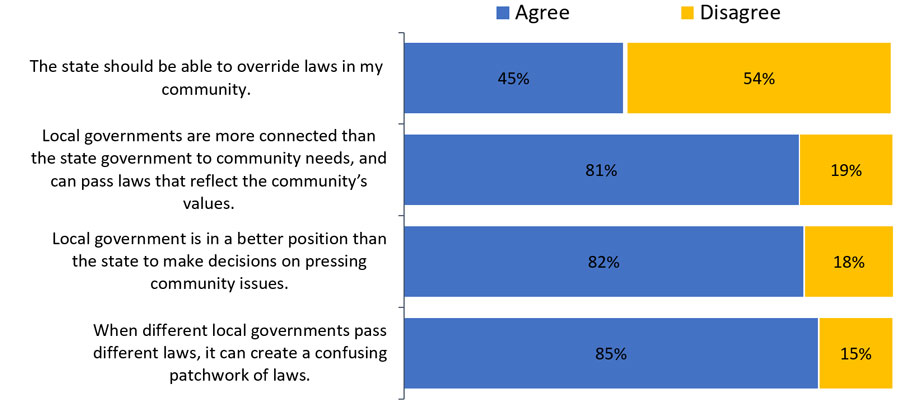
However, people agree that it can be confusing when local governments create different laws. That doesn’t mean that they don’t support local decision-making, but it does remind us that it’s beneficial for city leaders to be aware of
that challenge.
Which government should be responsible?
The poll asked who should be responsible for what policy area, the state or cities—which was again not an exhaustive list of issues asked.
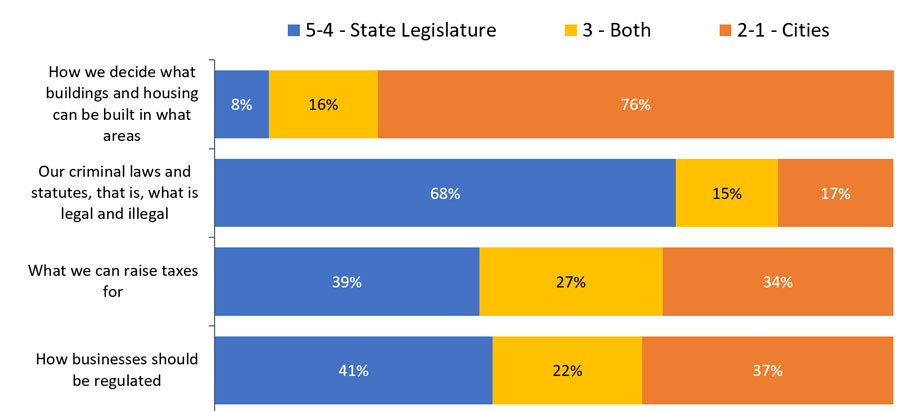
76% of respondents feel that city government should be responsible for deciding what buildings and housing can be built in what areas. Whereas 68% of respondents feel that state Legislature should be making the determinations
about criminal laws and statutes. Raising taxes and determining how businesses should be regulated were largely viewed as an even split.
Housing decision-making
On the topic of housing, the issue of trust in local government is also clear. 68% of respondents say that local government should make growth decisions.
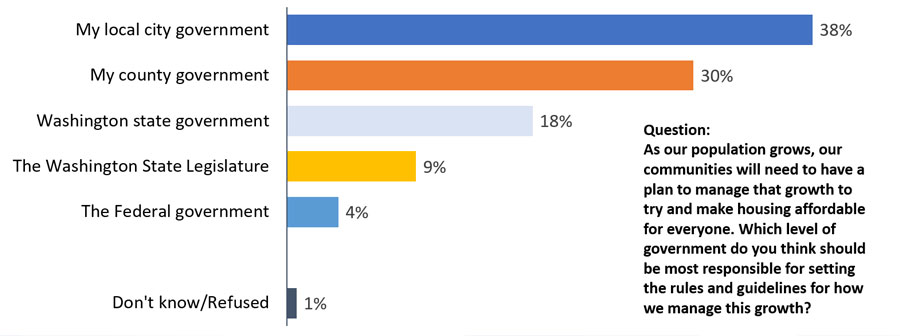
All the following poll questions remaining in this snapshot come from forced-choice questions. Respondents were read two statements and asked which one they agree with more, even if neither is exactly right.
57% of respondents agreed more that increasing housing density will make housing more affordable. Specifically, that we can make housing more affordable by allowing for more housing density throughout our cities with townhomes, triplexes,
and condos in areas that allow for single-family homes and that natural market forces will drive down the costs.
41% of respondents instead agreed that the housing market won’t create more affordable housing on its own and we must increase government funding.
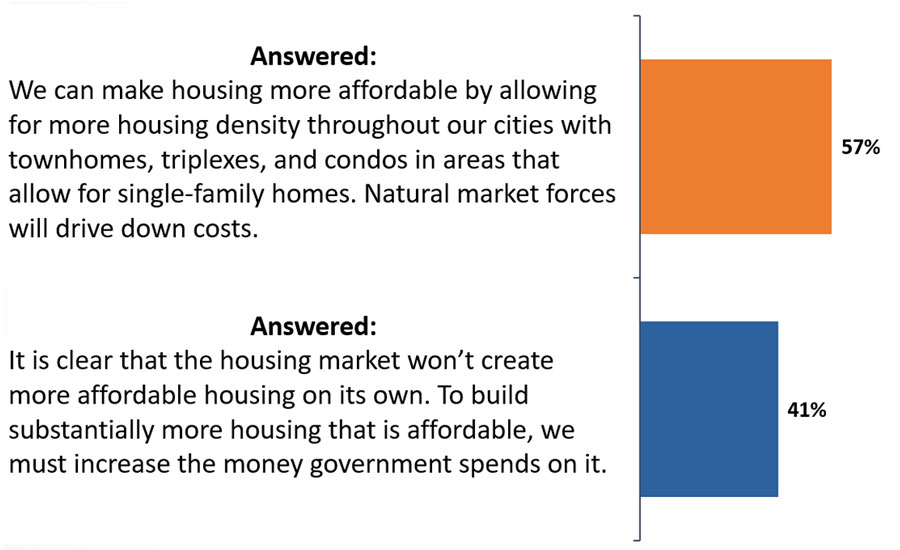
Finally, 56% of respondents believe that the affordable housing crisis is caused by private developers, rather than by overly restrictive zoning. Respondents feel more strongly about that in the Puget Sound and large cities. Here’s
how that question breaks down regionally.
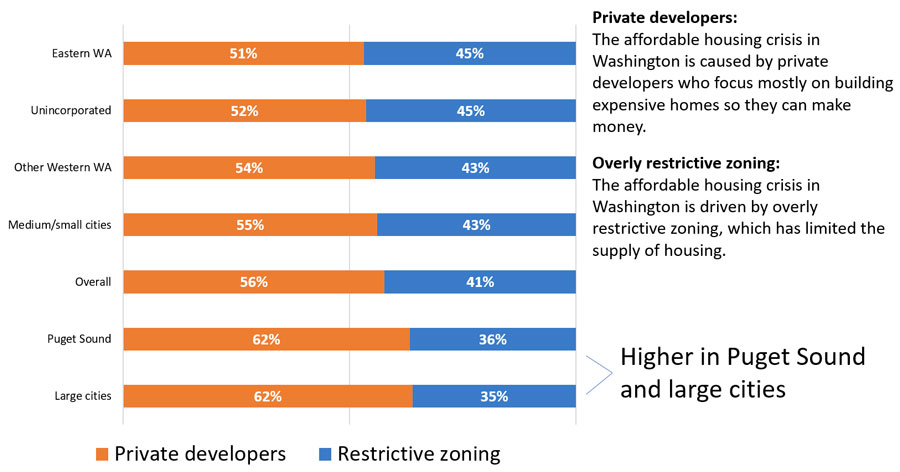
Public safety
On the topic of public safety, there was very strong support in communities around changing the vehicular pursuit standard.
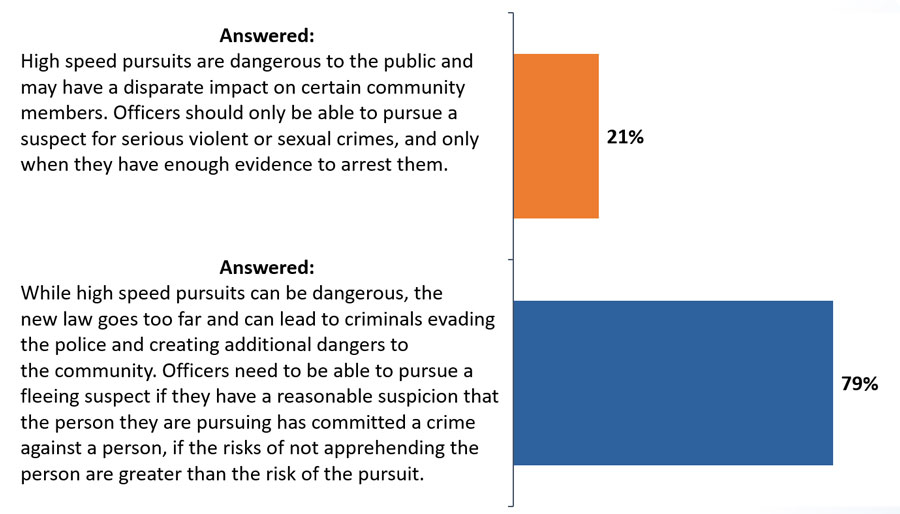
Blake
One of AWC’s other top legislative priorities—responding to the Blake decision also came in highly supported by residents.

Civility is valuable
Finally, and importantly, our residents value civility. 85% of respondents answered that they want their city leaders to treat one another with respect and civility, and to work together to get positive results for their city—even
if they have political differences.
